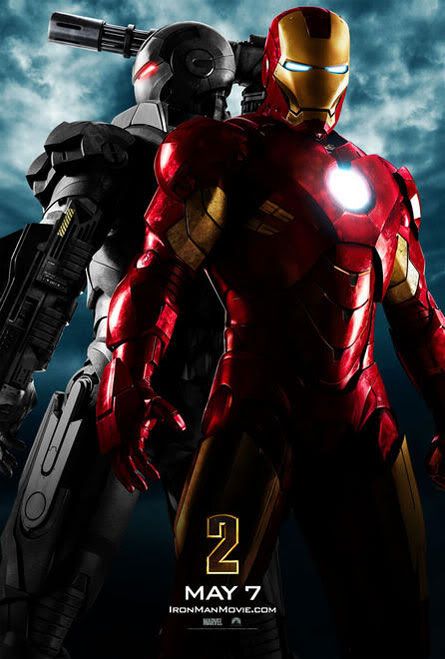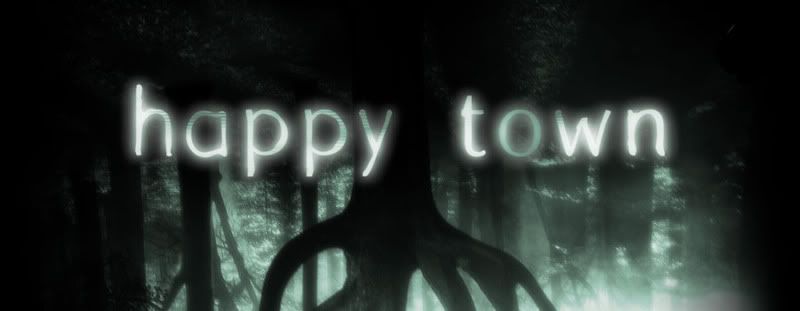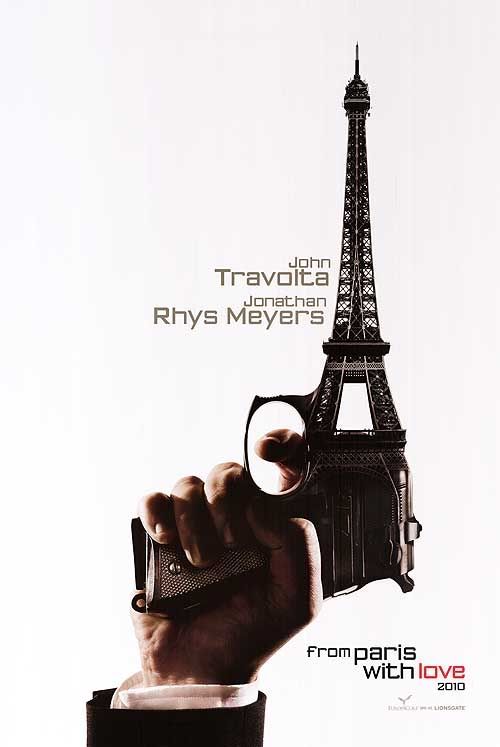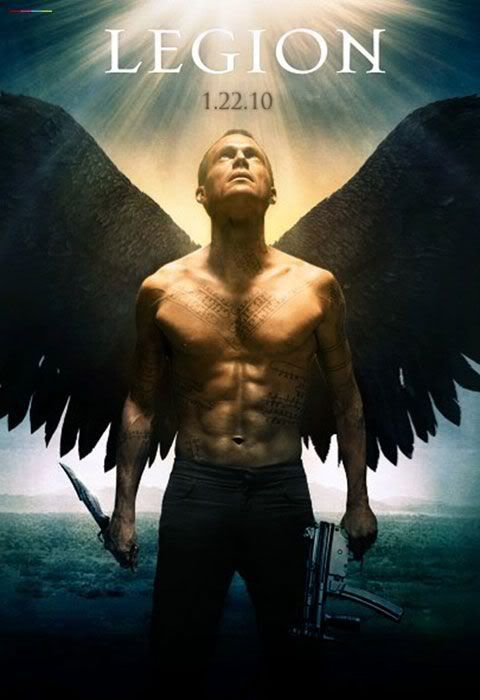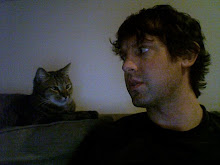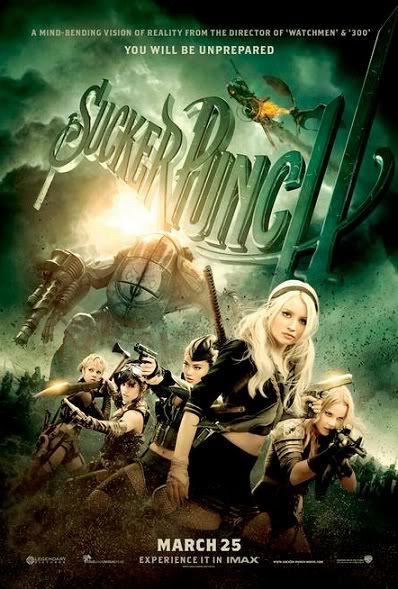
Where do I begin where Sucker Punch is concerned? I remember hearing the first rumblings of Sucker Punch sometime before or during the road to Watchmen. At the time the premise sounded like a descent into madness, reality bending fantasy extravaganza. By the time the first trailer hit, I became suspicious. Believe me, the parts of the whole of what this teaser promised me were the things of nerdy wet dreams. However, as we've all learned at one time or another (most likely after an early life binge on Halloween chocolate) too much of a good thing can indeed become a bad thing.
I'll admit right out the gate that I haven't been the best supporter of Zack Snyder's feature film career. I absolutely loved his remake of Dawn of the Dead. 300 was a fun theater experience with diminishing effect on home video and Watchmen was a valiant effort to finally do Alan Moore some cinematic justice, but ultimately focused too much on stylistics and glitzy showmanship than the overall tone and thematic bigger picture. Visionary director he may be, his insistance on staccato slo-mo action sequences and the polished, misty lens filters have become a signature of his, albeit in some cases a movie-goers deterrent.
The plot is relatively simple. Emily Browning (Lemony Snicket and the recent horror dud, The Uninvited) plays the aptly named Babydoll, as she looks more plastic than human, accidentally murders her sister while trying to defend her from their molesty step-father. He sends her to an institution and organizes a wholly unnecessary lobotomy, due in the next five days as the lobotomist (an unfortunate turn for Mad Men's Jon Hamm, who knocked it out of the park in The Town last year...) isn't immediately on hand. So Babydoll meets the other crazy girls with equally inexplicable monikers (Abby Cornish as Sweet Pea, Jena Malone as her sister Rocket and an thankfully underused Vanessa Hudgens as Blondie... yep, she's not blond either...) and suddenly *FLASH* the mental institution is now a strip club/brothel. Why is Babydoll's initial escape fantasy a brothel? Your guess is as good as mine, but I'd bet it's just a cheap excuse to dress them all as school girls for 90 minutes.
Male Nerds - 1
Female Empowerment - 0
So the institution is now a whorehouse where the orderlies and employees are represented by other whorehouse workers and patrons. Carla Gugino puts on a clearly super-real Polish accent as Madam Gorski the matron of the whorehouse/dance instructor/head therapist in the "real" world institution. Now comes the fun part. Babydoll finds that when she dances, everyone (and I mean everyone) who witnesses it is so entirely captivated that no one can do anything else BUT watch her dance. Funny, because as an audience we NEVER see it. You see, every time she dances, she goes into a trance like state and enters yet another perception ofreality making up the marketing campaign that has deceived us all. You've got everything nerds wet their pants for from Steampunk Nazi Germany to a Total Recall Robot Train, all of which makes no symbolic or allegorical sense in regard to what might be happening in the second level of fantasy, and even less sense in the ultimate real world which we still haven't seen since the first time Babydoll set foot in the asylum. But hey, all of the (still scantily clad) patients are wielding guns, swords, knives and are kicking major ass. Nothing spells empowerment like wanton violence in pig-tails, amIright?
To its credit (of the few there are) Sucker Punch finally utilizes the slo-mo technique much more organically and in a way that's not poking you in the forehead every time it's going on. The CG environments, makeup and costuming are all top notch. No two ways about it, Snyder knows how to utilize a budget to make a movie look pretty. Though, as so many Disney movies have taught us, it's what's on the inside that counts and Sucker Punch is like that head cheerleader in high school, expecting to coast along on her good looks for the rest of her life.
As it stands, pretty much everything that's wrong with Sucker Punch is script and story centric. This stands as Snyder's first movie where the story was 100% his own (with script co-written by Steve Shibuya.) Dawn being a remake of the 70's classic mall zombie flick, as adapted by cult hero James Gunn and 300 and Watchmen being the page-turning brainchildren of Frank Miller and Alan Moore, respectively. Snyder understands the structure and the pacing, but any form of subtext seems to be beyond his capacity as a storyteller. The distinct disconnect and subsequent disregard to other levels of reality is where Sucker Punch really gets hurt. It feels as if there could be more potential for thematic discovery without resorting to literal Dragon-slaying and in the end just feels like empty fan service.
The soundtrack is another conundrum. It's a known fact that there actually were dance numbers committed to film, but were cut due to time constraints for release. So when Emily Browning was tapped to provide her own vocals for covers of songs like "Sweet Dreams" and "Where is My Mind?" (I know, right?) all signs pointed to a Moulin Rouge meets Fantasy CosPlay session style musical. Which would've made more of the movie work as a whole. Instead what we get are pop-song overtures played overtop dialog free vignettes which melt into score-pieces styled after said pop-songs and then a prolonged music video-esque action sequence. I feel like if Snyder had just gone all out and made it an operatic full-on musical it would have been much more engaging as an experimental nerdish amalgam. However, there are already rumblings of a director's cut which will re-insert the previously cut dance sequences.
So what now? We could consider this a win for the creative community since Snyder was able to take a wholly original idea and have it financed and released by a major studio. Though it's box office draw (a mere $19 million and losing to Diary of a Wimpy Kid 2) and critical reception (currently 20% on Rottentomatoes.com) could make Warners and other major studios wary of original concepts in the future. Which leaves the future of the Superman franchise in question as well. Did Christopher Nolan make the right decision choosing Snyder to direct the much needed reboot of the Man of Steel? As casting is still underway and the script has yet to be finished (with Snyder nowhere near it, thankfully) more remains to be seen. Unfortunately Sucker Punch is not so much an utter failure, but a great disappointment for the nerd community.
I'll admit right out the gate that I haven't been the best supporter of Zack Snyder's feature film career. I absolutely loved his remake of Dawn of the Dead. 300 was a fun theater experience with diminishing effect on home video and Watchmen was a valiant effort to finally do Alan Moore some cinematic justice, but ultimately focused too much on stylistics and glitzy showmanship than the overall tone and thematic bigger picture. Visionary director he may be, his insistance on staccato slo-mo action sequences and the polished, misty lens filters have become a signature of his, albeit in some cases a movie-goers deterrent.
The plot is relatively simple. Emily Browning (Lemony Snicket and the recent horror dud, The Uninvited) plays the aptly named Babydoll, as she looks more plastic than human, accidentally murders her sister while trying to defend her from their molesty step-father. He sends her to an institution and organizes a wholly unnecessary lobotomy, due in the next five days as the lobotomist (an unfortunate turn for Mad Men's Jon Hamm, who knocked it out of the park in The Town last year...) isn't immediately on hand. So Babydoll meets the other crazy girls with equally inexplicable monikers (Abby Cornish as Sweet Pea, Jena Malone as her sister Rocket and an thankfully underused Vanessa Hudgens as Blondie... yep, she's not blond either...) and suddenly *FLASH* the mental institution is now a strip club/brothel. Why is Babydoll's initial escape fantasy a brothel? Your guess is as good as mine, but I'd bet it's just a cheap excuse to dress them all as school girls for 90 minutes.
Male Nerds - 1
Female Empowerment - 0
So the institution is now a whorehouse where the orderlies and employees are represented by other whorehouse workers and patrons. Carla Gugino puts on a clearly super-real Polish accent as Madam Gorski the matron of the whorehouse/dance instructor/head therapist in the "real" world institution. Now comes the fun part. Babydoll finds that when she dances, everyone (and I mean everyone) who witnesses it is so entirely captivated that no one can do anything else BUT watch her dance. Funny, because as an audience we NEVER see it. You see, every time she dances, she goes into a trance like state and enters yet another perception ofreality making up the marketing campaign that has deceived us all. You've got everything nerds wet their pants for from Steampunk Nazi Germany to a Total Recall Robot Train, all of which makes no symbolic or allegorical sense in regard to what might be happening in the second level of fantasy, and even less sense in the ultimate real world which we still haven't seen since the first time Babydoll set foot in the asylum. But hey, all of the (still scantily clad) patients are wielding guns, swords, knives and are kicking major ass. Nothing spells empowerment like wanton violence in pig-tails, amIright?
To its credit (of the few there are) Sucker Punch finally utilizes the slo-mo technique much more organically and in a way that's not poking you in the forehead every time it's going on. The CG environments, makeup and costuming are all top notch. No two ways about it, Snyder knows how to utilize a budget to make a movie look pretty. Though, as so many Disney movies have taught us, it's what's on the inside that counts and Sucker Punch is like that head cheerleader in high school, expecting to coast along on her good looks for the rest of her life.
As it stands, pretty much everything that's wrong with Sucker Punch is script and story centric. This stands as Snyder's first movie where the story was 100% his own (with script co-written by Steve Shibuya.) Dawn being a remake of the 70's classic mall zombie flick, as adapted by cult hero James Gunn and 300 and Watchmen being the page-turning brainchildren of Frank Miller and Alan Moore, respectively. Snyder understands the structure and the pacing, but any form of subtext seems to be beyond his capacity as a storyteller. The distinct disconnect and subsequent disregard to other levels of reality is where Sucker Punch really gets hurt. It feels as if there could be more potential for thematic discovery without resorting to literal Dragon-slaying and in the end just feels like empty fan service.
The soundtrack is another conundrum. It's a known fact that there actually were dance numbers committed to film, but were cut due to time constraints for release. So when Emily Browning was tapped to provide her own vocals for covers of songs like "Sweet Dreams" and "Where is My Mind?" (I know, right?) all signs pointed to a Moulin Rouge meets Fantasy CosPlay session style musical. Which would've made more of the movie work as a whole. Instead what we get are pop-song overtures played overtop dialog free vignettes which melt into score-pieces styled after said pop-songs and then a prolonged music video-esque action sequence. I feel like if Snyder had just gone all out and made it an operatic full-on musical it would have been much more engaging as an experimental nerdish amalgam. However, there are already rumblings of a director's cut which will re-insert the previously cut dance sequences.
So what now? We could consider this a win for the creative community since Snyder was able to take a wholly original idea and have it financed and released by a major studio. Though it's box office draw (a mere $19 million and losing to Diary of a Wimpy Kid 2) and critical reception (currently 20% on Rottentomatoes.com) could make Warners and other major studios wary of original concepts in the future. Which leaves the future of the Superman franchise in question as well. Did Christopher Nolan make the right decision choosing Snyder to direct the much needed reboot of the Man of Steel? As casting is still underway and the script has yet to be finished (with Snyder nowhere near it, thankfully) more remains to be seen. Unfortunately Sucker Punch is not so much an utter failure, but a great disappointment for the nerd community.



